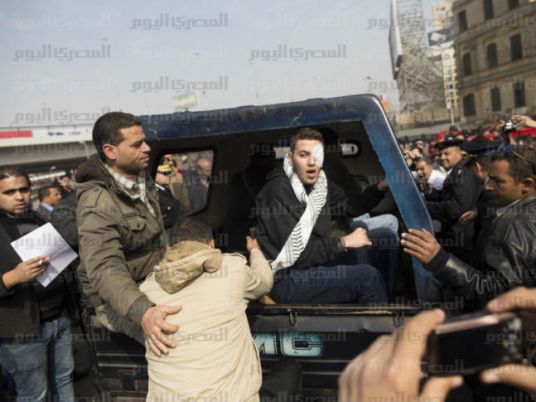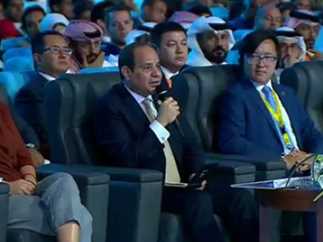The National Council for Human Rights announced in a press conference on Wednesday that their Fact-finding Committee concluded that the Ministry of Interior, the National Democratic Party and state media are responsible for the different forms of violence used against protesters during the 25 January Revolution.
The committee presented its report to the General Prosecutor and demanded the speedy trial of all those involved in assaults on protesters, asserting that cases against some individuals are complete and should result in a fast verdict.
"Social stability will not be restored as long as there is blood that hasn't been avenged fairly," said Hafez Abou Seada, head of the Egyptian Organization for Human Rights.
The report says that the responsibility for the use of excessive force against protesters lies mainly with the former Minister of Interior Habib al-Adly and the former President Hosni Mubarak, who was the head of the Supreme Police Council.
Committee member Fouad Riad says that while the primary responsibility lies on the decision-maker, even if he wasn’t present, those officers who agreed to carry out the orders and the middle-ranking leadership who spread them should also be held accountable for their actions.
“The responsibility lies on anyone who had the power to prevent the use of live ammunition on protesters and didn’t,” said Riad.
The report discredits the former minister of interior’s denial that he issued orders to use live ammunition against protesters, saying that records of Central Security phone calls obtained by the general prosecution show that orders to use live ammunition on protesters originated from the ministry.
“In all conditions, the minister of interior’s direct responsibility for the crimes that were committed during this period is constant, due to his political responsibility as a minister of interior and his legal responsibility for the actions of his subordinates,” states the report.
According to the report, the leadership of the Central Security refused to carry out the orders, while field leaders in some areas, including Tahrir Square, responded to the orders after the Ministry of Interior pressured them.
The report offers two potential explanations for the security vacuum that appeared in the country on 28 January, causing multiple incidents of looting, and leaves the responsibility for determining the truth with the General Prosecution.
The first scenario suggests that the security gap was an intentional plan by the Ministry of Interior to try to contain the protests, while the second suggests that it was caused by the breaking down of the police after four days of fighting protests.
While the committee hasn’t found any evidence that the ministry was responsible for the escape of thousands of prisoners, it holds it responsible for failing to secure prisons during that critical time.
The committee also holds state media responsible for inciting violence against protesters and of spreading rumours that deprived the public of its right to be kept informed. The committee demands the prosecution of all those media figures that took part in this violation.
At the end of the press conference, the committee urged the Public Prosecution to broaden its investigations of NDP leaders to include their responsibility for the formation of secret militias that were used against protesters and which appeared on many occasions prior to the revolution.
It also demanded that the state facilitate the procedures by which the families of the revolution’s martyrs are to receive the compensation and exceptional pensions that the government has allocated to them. So far, families of martyrs have been struggling to obtain the required paperwork.
In the meantime, the committee demanded that the government provide free medical treatement for those who were hurt during the revolution.




